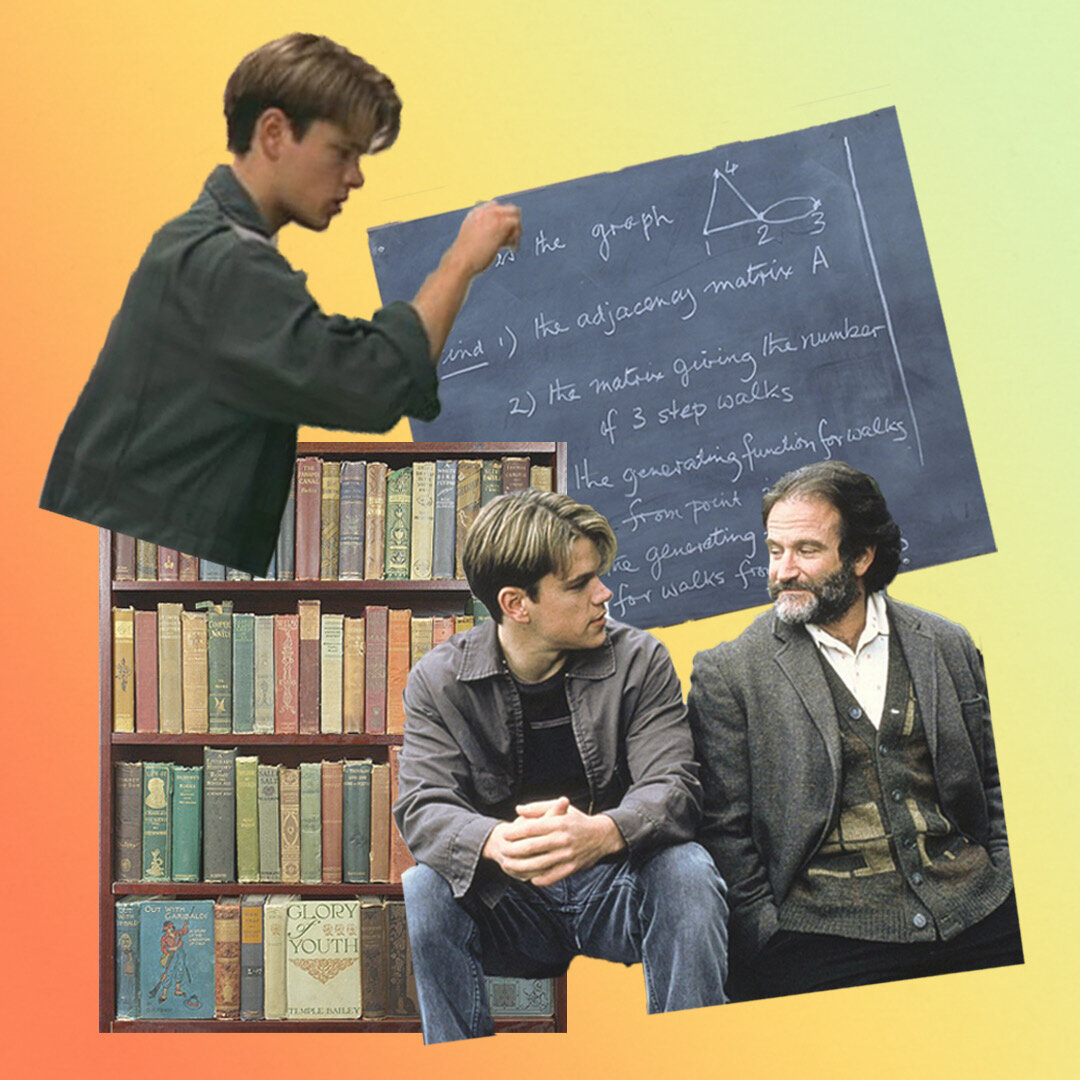What Good Will Hunting Says About Outliers
By Eryn Swann
Collage by Jas Calcitas
Good Will Hunting is a 1997 drama film which follows the life of ordinary Will Hunting, a should-be student that services the halls of a prestigious Ivy League college as a night-time janitor. The film explores his turbulent behaviour towards authority, love, and most importantly opportunity.
Will is initially established as a simple South Boston guy who puts his physicality to use in the form of honest labour — working night shifts at MIT, while being a humble and easy-going loyal friend to his bevy of Southie buddies. However, during the first act he is also revealed to have an affinity or more-so self-taught passion for academics - specifically, mathematics. During one run-of-the-mill shift mathematics professor Gerald Lambeau has left an algebraic problem on the blackboard outside a lecture hall for his graduate students to solve. Will, not-so-discreetly, picks up the chalk and solves the problem which, when seen by Lambeau who is walking through the hallway with a colleague, is perceived as vandalism of the students’ academic work and so Will is reprimanded by Lambeau. Lambeau’s colleague studies the solution and concludes that the answer is correct to the dismay of both him and Lambeau.This is the crux that pervades the perceived character of Will Hunting through the dichotomy of class and intellect and is later solidified during an infamous altercation at a bar. The bar scene begins with a Harvard student seeking to belittle Will’s friend Chuckie by using pseudo-intellectual jargon during Chuckie’s attempt to pick up a girl. By coming to Chuckie’s aid and engaging in an intellectual fistfight, Will establishes himself as the “wicked smart” member of the group. Will verbally annihilates his opponent who initially viewed him as mentally inept due to their assumptions based on Will’s suburban vernacular and potential career prospects in contrast to their own supposedly deserved greater opportunities - benefited from attending a prestigious educational institution. However, through this altercation, Will is able to both respect and value his autodidactic accomplishments while seeing through the conceited phoniness of unoriginal wanna-be philosophers.
Both these events serve as the forefront of the moral and intellectual contentions within Will and the people who surround him. Coming from a broken home, riddled with violence and abuse, and without idols to aspire to, Will conquers the quandaries between the safety of what he has always known (and the cycle of abuse he could inevitably continue) and venturing into academic discomfort that will ultimately result in a better future. Not only does this allegory provide solace, but also inspiration that class is not the enemy that seeks to hold one down, but instead it is one’s own perception of themselves within society that is the root of this. By pushing past his adversaries, Will’s intellect enables him to achieve successes that reach beyond his life as a potential bricklayer with his childhood friends. Instead, because of his hard work and with the emotional support of mentors and friends, he is certified as a societal outlier that is deserving of greater opportunities. This further exemplifies that no matter a person’s background, location, or socio-economic status, they can triumph through adversity with hard work, determination and perseverance. By sacrificing historical cycles of behaviour and mindset, and seeking discomfort for a better future, one can only be rewarded with success.

